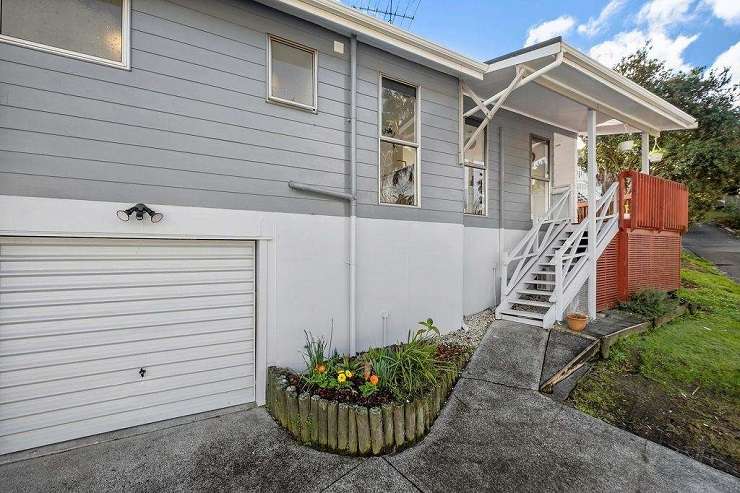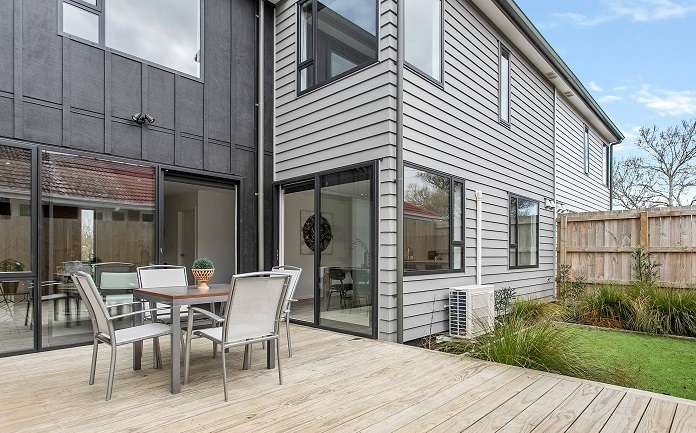Auckland real estate agents say some buyers are using negative headlines to get a better deal, but they noticed an uptick in sales and interest in recent weeks as more and more vendors ditch unrealistic expectations around pricing.
Harcourts agent David Ding, who operates in the affordable first home markets around the North Shore suburbs of Glenfield and Bayview, said that reports of a sinking market worked both ways.
“If it’s a buyer, then they use [the negative news] as a weapon to attack the vendor,” he said.
“We’ve seen this since February, and it is always mentioned in negotiations. But vendors just say ‘no way.’ People take the information that suits them, and ignore the bad.”
Start your property search
Ding said that in the last couple of months vendors had increasingly becoming more accepting of the shift in the market compared to earlier in the year. However, buyers were still in “wait and see” mode.
“Buyers are saying ‘let me know if it passes in’. I’m saying ‘What if sells for $x and you miss out?’” he said, adding that his pitch to buyers is that you never know why the vendor is selling and what price they might accept in the transparency of an auction setting.
“Vendors are more ready to accept this market. They’ve experienced this market for half a year, so if they’re listing, they’ve got a good reason,” he said.

A well presented two-bedroom property for sale at 2a Noeleen Street, in Glenfield, Auckland. Photo / Supplied
Vendors who presented well and were prepared to price realistically were still selling. “Presentation didn’t matter last year. People would say ‘who cares’," Ding said.
One of his listings, a two-bedroom house at 2a Noeleen Street, Glenfield, had eight viewings at the weekend because the vendors had put the effort into cleaning and presenting the property.
“It will sell at tender. I can tell from the interest in the home they’ll get five to 10% more than market price,” he said.
Meeting the market price helps, too.
In June, Ding had an offer on a three-bedroom cross lease house on Simon Ellice Drive, in Bayview, six days after it was put on the market. The vendor had rejected an offer at the end of 2021 in the market peak, but was now ready to move to Australia.
“He was happy to meet the market. We priced it at $945,000, we had an offer and it sold. Having a price on it pulled in a huge number of people. We had 15 to 18 people in one weekend, which is huge for Bayview,” Ding said.
“If the price is right, the buyers take it,” he said, adding that a few potential buyers missed out on the house because they didn’t believe it would sell so fast.

A three-bedroom house on Simon Ellice Drive, in Bayview, Auckland, sold quickly after it was priced at $945,000. Photo / Supplied
Ray White Mount Eden owner Jared Cooksley, whose agents cover top homes in the inner-city suburbs of Mount Eden, Mount Albert and Kingsland, said that he was still selling 83% of listings within 90 days, and around 90% of his vendors were still going to auctions first, which currently have clearance rates of just over 60% in his office.
He said that he had vendors who were worried about negative headlines, but he would always ask what their motivation to sell was.
“We always ask ‘what is your goal?’. Maybe it’s to move up the ladder. In that case we say ‘the difference is the same’ - if you’d sold for $2.5m last year to buy for $3m, now it’s $2m to buy at $2.5m. The difference is the same so you still achieve the same goals.
“If they’re under financial pressure, say they need to clear debt, then that’s a tougher situation.”
Bayleys agent Glenn Baker, who sells around Onehunga and One Tree Hill, was sanguine about the negative chatter. “In New Zealand, we’ve got nothing to talk about but house prices, the cost of living and petrol prices, there’s not a lot else going on,” he said.
“But I have to say that the publicity on this market is the most I’ve seen in my 30 years in real estate.”

A townhouse on Tawhiri Road, One Tree Hill, Auckland, sold in six days. Photo / Supplied
Baker said he would explain to vendors that while last year's market was “pretty good”, this year’s prices were consistent with the curve of the more regular price increases between 2018 and 2020.
“If you kept projecting at that rate, it’s not far off that now. When we go through a bit of a correction, it’s taken out the anomaly of last year.”
Baker said he was seeing more vendors sell before they buy, unlike last year, and "that’s easier for them, a bit more normal”.
“Four out of nine of my last sales sold with conditions. It’s only taking a week or two to go from conditional to unconditional if they’re not dependent on [buyers’] houses selling,” he said.
He said buyers were still there - waiting for the house they like and ready to move when they see it.
He recently sold a five-bedroom townhouse on Tawhiri Road, in One Tree Hill, within six days of it hitting the market. The buyer was the first person to look at the property.
Like the other agents OneRoof spoke to, Baker noted that the last couple weeks of July had had a definite up-tick in numbers at open homes and buyer enquiry.
Barfoot & Thompson managing director Peter Thompson said there was no good time or bad time for buyers and sellers, but he noted that people were “holding on for spring and certainty.”
“We’re in the heart of winter, but we do have an economic downturn, and Covid, and we’ve just got back international travel, so a lot of people are taking a well-deserved break,” he said, following the agency’s report that last month’s sales were the lowest for July in 22 years.
Barfoot & Thompson sold 611 properties last month compared to 1235 in July 2021. Even in July 2019, as Auckland was emerging from a slump, the company sold 879 homes.
However, Thompson was confident the housing market would be stronger in the run-up to spring, predicting that the next headlines would be: “More sales are on their way.”



















































































